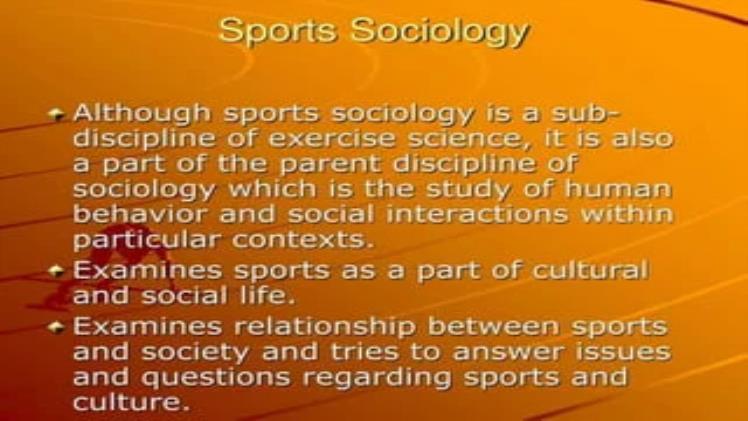The Sociology of Sports

Sports refers to any competitive or organised physical activity that requires a considerable amount of skill and effort. They can range from individual contests to large events with hundreds of participants. Sport can be part of someone’s life as a hobby, profession or leisure pursuit.
It is essential to have a precise definition of sports, as well as an equitable system of rules and regulations for their development. In order to be considered true sport, it must meet certain criteria like being voluntary, enjoyable and providing athletes with an authentic sporting opportunity.
Voluntariness is the hallmark of sport and sets it apart from other forms of recreation. For instance, gladiators in Roman arenas were mostly voluntary participants in their sport (though some didn’t necessarily enjoy themselves). Furthermore, these gladiators engaged in activities with socially accepted ethical values as well. On the contrary, current school “sports”, which do not meet all other criteria for being classified as such activities – are often practiced without voluntary involvement.
A fair chance of winning is another essential element in defining a sports competition. If the winner and loser do not play fairly, then the sport no longer qualifies as an actual sporting contest.
Sociology of Sport examines the social, cultural and economic consequences of sports. This topic can be examined from various disciplines such as political science, anthropology and history.
Sport has long been a global phenomenon, with nations around the world participating in some form of activity. While some regions, such as the United States, Europe and former Soviet bloc, remain dominant, many Asian, African and Latin American nations are now playing an increasingly prominent role on the international sports stage.
Sports and media have an intimate bond, which has profoundly shaped sporting culture. With the rise of commercial mass media as well as public or state television channels, there has been no shortage of ways to cover sport.
It is essential to comprehend the global sports landscape and power balances that shape it. These processes involve intricate networks and interdependent chains with unequal power relationships.
Like many aspects of culture, modern sports were largely initiated and spread by Western nations and their cultures. Non-Western cultures have often rejected or reinterpreted Western forms of sport in favor of their own indigenous recreational pursuits, which were later reinterpreted and promoted worldwide.
Modern sports have had an unprecedented global impact, creating and disseminating unintended consequences and shifting power balances between groups. Therefore, it is impossible to discuss one sport without considering all of the structures, organizations and ideologies created and maintained as a result of this transformation.
